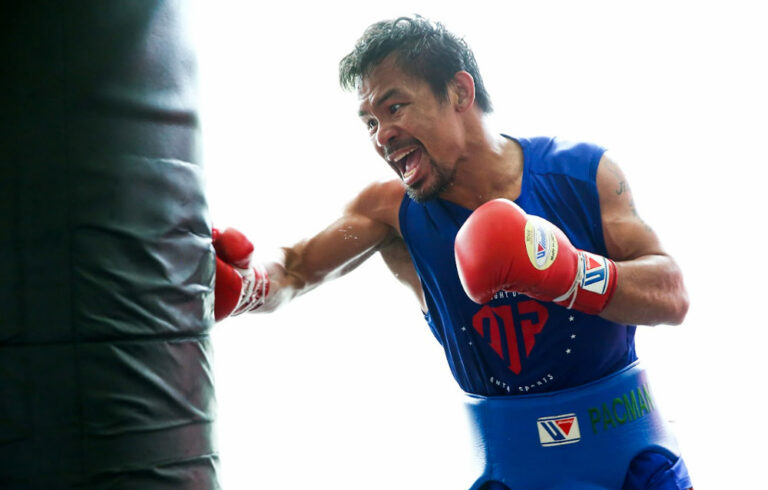Last week, about an hour before the Los Angeles Lakers were to face the Timberwolves here at Target Center, Gary Vitti leaned against a wall outside the visitors’ locker room and exhaled. Vitti has been the Lakers’ athletic trainer for 32 seasons, but he has other responsibilities, too. He fields ticket requests. He helps manage the schedule.
“It’s like herding cats, man,” he said. “They’re all over the place.”
Vitti knew his biggest challenge of the night was still ahead: marshaling the players out of the arena and to the airport in a timely fashion. It had everything to do with Kobe Bryant, who was about to make his final appearance in Minneapolis on his farewell tour of N.B.A. arenas.
“The most disruptive thing is trying to get out of here after the game,” Vitti said. “He has to do his postgame therapy, and then he does his media, and then everybody wants a piece of him because they’re not going to see him again. I’m just trying to get these guys to the next city.”
Vitti, 61, has seen a lot in his time with the team, and there are elements of Kobe-palooza — coming soon to a city near you — that feel vaguely familiar. In the 1988-89 season, Vitti witnessed the pageantry of Kareem Abdul-Jabbar’s season-long retirement from the Lakers. A 19-time N.B.A. All-Star and the league’s career scoring leader, Abdul-Jabbar helped the Lakers win five championships. Everywhere he went in his final season, opposing crowds and teams treated him with reverence.
“We all got a lot of rings out of Kareem,” Vitti said. “He deserved it, and I think everyone was proud to be a part of it.”
Today, the league has settled in for the slow buildup to the end of another era, as Bryant, 37,who announced on Nov. 29 that this season would be his last, travels from city to city. Abdul-Jabbar, 68, said he could see the parallels between his path and Bryant’s.
“Kobe should allow the fans to show him some appreciation as he goes out,” Abdul-Jabbar said, “because most of the time they were rooting against him, and it’s nice to feel that change.”
Farewell tours are the province of deified sports figures. Derek Jeter and Mariano Rivera were feted at baseball stadiums ahead of their retirements from the Yankees. Julius Erving drew massive crowds as he played his final games with the Philadelphia 76ers.
But while Abdul-Jabbar was among the first athletes (and perhaps the first) to have such a grand, elongated send-off, it helped that he announced his impending retirement well ahead of his final season. Bryant waited until the season was underway, when it was finally clear to him that he was powerless to ward off the effects of age and injury.
“He kept everyone guessing for a while,” said Mychal Thompson, an analyst for the Lakers’ radio broadcasts.
Thompson, who played alongside Abdul-Jabbar, recalled the unceremonious ending to his own N.B.A. career. The Lakers bought out his contract, and he spent a final season in Italy.
Advertisement
Continue reading the main story
“I tried to do the same thing that Kareem did,” Thompson said, deadpan, “but I didn’t even get a pigpen.”
Bryant has chosen to forgo pregame ceremonies on the road, saying he does not want to be a distraction. No gifts, at least not in public. But the video tributes, the standing ovations, the fans who wait outside arenas after games hoping to catch a glimpse of the man — the atmosphere is still one that borders on hysteria.
“The way he showed up to play hard every night, people appreciate that,” Thompson said.
If the dynamics were similar for Abdul-Jabbar, there were key differences: Crowds were more respectful than hysterical, and his team was good. The embers of the Showtime-era Lakers were cooling, but the team was still bound for the N.B.A. finals that season.
Byron Scott, one of Abdul-Jabbar’s longtime teammates, is now the Lakers’ coach. He has been in charge of a grease fire. The Lakers were 4-21 ahead of their home game Thursday against the Houston Rockets. Scott has decided to cede the spotlight to Bryant, for better or for worse.
“We have so many young guys on this team, and I don’t know how they’re handling it,” Scott said last week. “But for myself and our coaching staff, you’ve been through this and you expect this, and it’s kind of the routine right now because this is how it’s going to be for 82 games.”
For Abdul-Jabbar, the logistics were fairly straightforward. Whenever he made his final appearance at an opposing arena, players from both teams would begin to warm up, and then everything would pause for a five-minute ceremony as officials gathered to honor him at midcourt. His teammates and the team’s staff would take it all in.
Vitti recalled how he always stood next to Magic Johnson. It became a part of their ritual, Vitti and Johnson watching as Abdul-Jabbar collected gift after gift: a Winchester rifle from the Utah Jazz, a wet suit from the Los Angeles Clippers, VCRs from the Nets and the Chicago Bulls (yes, two VCRs). Johnson would lean toward Vitti and smile.
“Can you imagine what they’re going to do for me when I retire?” Vitti recalled Johnson saying more than once.
Johnson never got the chance. In November 1991, he revealed that he was H.I.V. positive, hastening his retirement. He made a brief comeback in 1996, but it lacked pizazz.
“He was robbed of that,” Vitti said.
The ceremonies for Abdul-Jabbar had a cumulative effect on the team, Vitti said. Today, player introductions feel like Hollywood movie trailers. The lights dim, flames fly from scoreboards and music blasts from enormous speakers. Nothing seems to faze players anymore. But back then, the atmosphere was muted.
“You did the anthem, they announced the players and then you played,” Vitti said. “They didn’t turn the lights out. There was no fire. They didn’t do any of this stuff.”
So whenever an opponent honored Abdul-Jabbar, it was a break from routine. He was 42 when he retired, and he acknowledged that the process became emotionally taxing.
Advertisement
Continue reading the main story
“But it was a real honor to be singled out like that,” Abdul-Jabbar said.
Abdul-Jabbar, who responded via email to questions submitted through his publicist, recognized that the quality of his play was declining. In his final season, he averaged 10.1 points and 4.5 rebounds a game. Hindered by injuries in the finals, the Lakers fell to the Detroit Pistons in a four-game sweep.
“I knew my stats were going down, and I had other things that I was struggling with,” he said. “So I was pretty happy that it was my last season because I didn’t want people remembering me not playing up to the standards I had set my whole career.”
Before their final home game of the regular season, the Lakers celebrated Abdul-Jabbar at the Forum, which was packed with celebrities: Quincy Jones, Gilda Radner, Jack Nicholson, and Cheech and Chong, among others. Abdul-Jabbar’s son Amir sang the national anthem. Chick Hearn, the team’s play-by-play broadcaster, served as master of ceremonies.
And there were, of course, more gifts, including a lighted tennis court for his home in Hawaii, courtesy of the team’s owner, Jerry Buss. Abdul-Jabbar’s teammates and coaches bought him a Rolls-Royce. Sadly, Thompson said, Abdul-Jabbar had trouble folding his 7-foot-2 frame inside the vehicle, and that was not the first incident of its kind. Earlier that season, the Golden State Warriors presented him with a sailboat.
“But it was too small for me,” Abdul-Jabbar said, “so I gave it away.”
Some gifts meant more to Abdul-Jabbar than others. He treasured an elephant sculpture that the Dallas Mavericks gave him, largely because his mother loved elephants. He also got great use out of a hand-carved rocking chair that was presented to him by the Charlotte Hornets. Whenever his mother visited, she would sit in the chair and wrap herself in a comforter she had crocheted.
Abdul-Jabbar still has the chair, he said, and he keeps the comforter at the edge of his bed.
It has not been the most graceful exit for Bryant, who spent weeks trying to shoot his way to his vintage self — shot after shot, most of them misses. His surgically repaired legs betrayed him as critics piled on, arguing that he should be more willing to accept a complementary role at this stage of his career.
Even Bryant acknowledged that his lower body felt sort of numb when the Lakers, at the start of the team’s recent eight-game trip, lost to the 76ers on Dec. 1. Coming on the heels of his retirement announcement, the game was a homecoming for Bryant, who grew up outside Philadelphia. He was 7 of 26 from the field in 32 tortured minutes.
Stu Lantz, the longtime analyst for the team’s television broadcasts, mentioned how gracious Bryant had been with fans and members of the news media “in the midst of trying to end his career somewhat respectably.” It might be Bryant’s greatest challenge to date. Lantz said he was under the impression that Bryant hoped to appear in every road game the rest of the way, mostly out of a sense of obligation to everyone who had paid to see him play.



